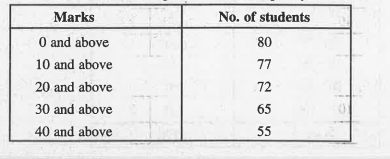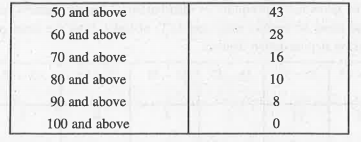Let f be differentiable function satisfying f(xy)=f(x)−f(y)for allx,y>0. If f'(1) = 1, then f(x) is Solution in Punjabi
0
12010
1
12011
The correct Answer is:D
Step by step video solution for Let f be differentiable function satisfying f((x)/(y))=f(x) - f(y)"for all" x, y gt 0. If f'(1) = 1, then f(x) is by Maths experts to help you in doubts & scoring excellent marks in Class 12 exams.
Updated on:21/07/2023Topper's Solved these Questions
- INDEFINITE INTEGRAL BOOK - ARIHANT MATHSCHAPTER - INDEFINITE INTEGRAL EXERCISE - Exercise 5 ( Matching Type Questions )
2 Videos
- INDEFINITE INTEGRAL BOOK - ARIHANT MATHSCHAPTER - INDEFINITE INTEGRAL EXERCISE - Exercise (Single Integer Answer Type Questions)
9 Videos
- INDEFINITE INTEGRAL BOOK - ARIHANT MATHSCHAPTER - INDEFINITE INTEGRAL EXERCISE - Exercise (Statement I And Ii Type Questions)
5 Videos
- HYPERBOLABOOK - ARIHANT MATHSCHAPTER - HYPERBOLAEXERCISE - Hyperbola Exercise 11 : Questions Asked in Previous 13 Years Exams
3 Videos
- INVERSE TRIGONOMETRIC FUNCTIONSBOOK - ARIHANT MATHSCHAPTER - INVERSE TRIGONOMETRIC FUNCTIONSEXERCISE - Exercise (Questions Asked In Previous 13 Years Exam)
8 Videos
Similar Questions
Find the mean marks of the following cummulative frequency table :


View SolutionIf ∫(2x+3)dxx(x+1)(x+2)(x+3)+1=C−1f(x) where f(x) is of the form of ax2+bx+c, then(a+b+c) equals to …….
View SolutionSolve dydx+yx=logx.
View Solutionwhich term of the following sequence : 312,3,332.....is 81?
View SolutionIf α=3sin−1(611andβ=3cos−1(49), where the inverse trigonometric functions take only the principal values, then the correct options (s) is (are)
View SolutionLet f(x) be a differentiable function satisfying f(y)f(xy)=f(x) ∀, x,y∈R, y≠0 and f(1)≠0, f'(1)=3 then
View SolutionLet f be a differentiable function satisfying f(xy)=f(x)−f(y) for all x, y>0. If f′(1)=1 then find f(x).
View SolutionLet f be differentiable function satisfying f(xy)=f(x)−f(y)for allx,y>0. If f'(1) = 1, then f(x) is
View SolutionLet f be a differentiable function satisfying f(xy)=f(x).f(y).∀x>0,y>0 and f(1+x)=1+x{1+g(x)}, where limx→0g(x)=0 then ∫f(x)f'(x)dx is equal to
View SolutionLet f(x) be a differentiable function satisfying the condition f(xy)=f(x)f(y), where y≠0,f(y)≠0 for all x,y y∈R and f'(1)=2
The value of 1∫−1f(x)dx is
View SolutionLet f:R+→R be a function which satisfies f(x).f(y)=f(xy)+2(1x+1y+1) for x,y>0. Then find f(x).
View SolutionLet f(x+y)=f(x)+f(y)+2xy−1 for all real x and y and f(x) be a differentiable function. If f′(0)=cosα, the prove that f(x)>0∀x∈R.
View Solutionमाना f एक अवकलनीय फलन है जो f(xy)=f(x)−f(y)∀x,y>0 को संतुष्ट करता है। यदि f'(1)=1 है, तो f(x) ज्ञात कीजिये।
View SolutionLet f be a real valued function, satisfying f (x+y) =f (x) f (y) for all a,y in R Such that, f (1) =a. Then , f (x) =
View SolutionLet f(x) be defined for all x>0 and be continuous . Let f(x) satisfy the relation f(xy)=f(x)−f(y) for all 'x' and 'y' and f(e)=1 then
View SolutionLet f(x) be defined for all x>0 and be continuous Let f(x) satisfies f(xy)=f(x)−f(y) for all x,y and f(e) = 1 Then
View Solution
